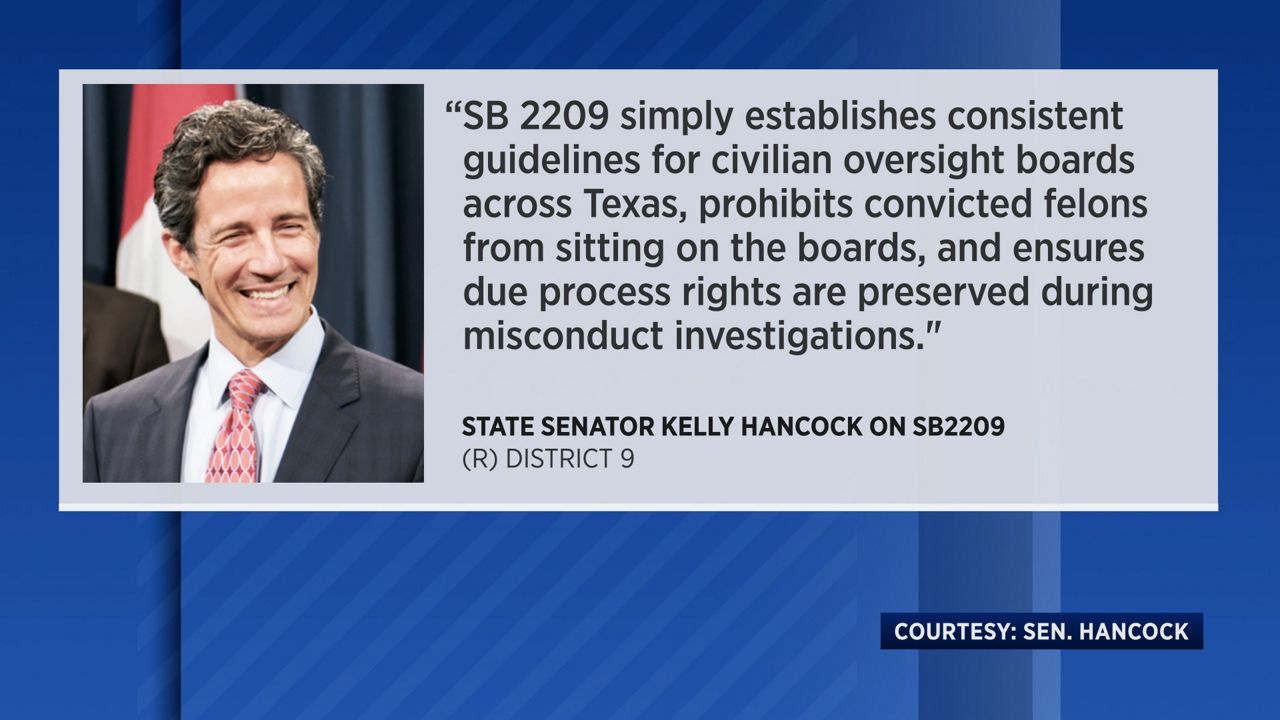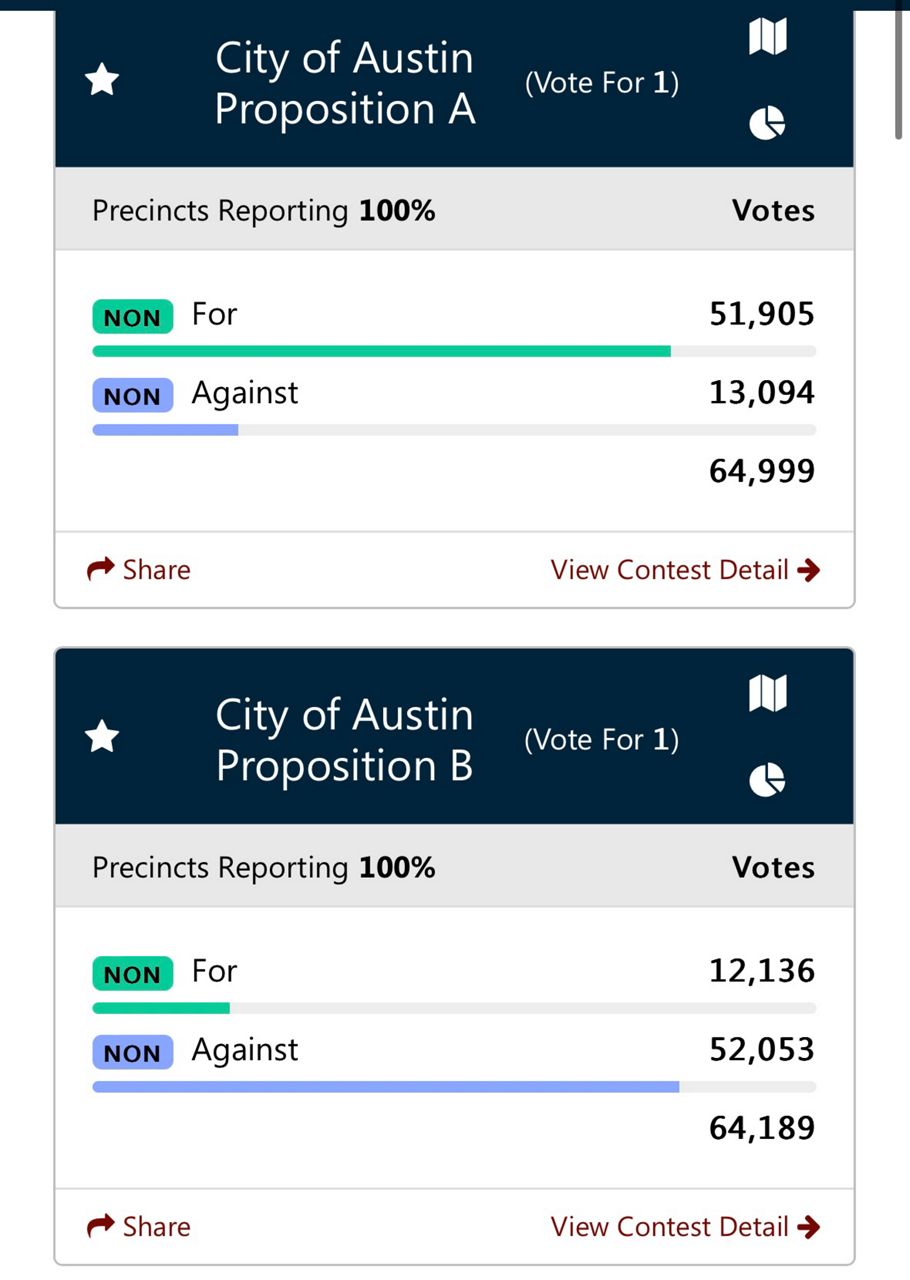AUSTIN, Texas — “Saturday, it was just like this collective sigh of relief from all of us when we realized we did it,” Castillo said.
For Alycia Castillo, her fellow Equity Action colleagues and those advocating for increased police oversight, the passage of Proposition A in Austin on May 6 was a long-awaited win.
“We’ve often felt like Sisyphus. Every time we take a step forward, something pushes us back,” Castillo said.
The progressive initiative — which features items such as civilian-involved reviews, recommendations, panels and access to police materials — is facing staunch opposition by two bills this session.
“We’re prepared to defend the will of democracy and the will of voters,” Castillo said. “We’re getting together right now and deciding what that might look like.”
SB 2209 is one of the major pieces of legislation standing in the way of these reforms in law enforcement accountability. State Sen. Kelly Hancock, R-North Richland Hills, who sponsored the bill, believes their job is to protect those who serve.

“Police officers and firefighters don’t give up their constitutional right to due process when they choose to serve and put on that uniform,” Hancock said. “SB 2209 simply establishes consistent guidelines for civilian oversight boards across Texas, prohibits convicted felons from sitting on the boards, and ensures due process rights are preserved during misconduct investigations.”
Advocates say the bill would not only limit the proposition in the Capital City, but could strip cities such as Dallas and Houston of their already- established oversight committees.

“The way the bill is written is really extreme and that folks need to understand bills that prevent any oversight or body from investigating is only to ensure civilians never get the answers they deserve,” Castillo said.
Groups such as Equity Action say they’ll work to delay these bills and hope they run out of time during this legislative session. Time itself is an issue. Castillo says Austin, which has paid millions in civil lawsuits involving extreme use-of-force in recent years, can't afford it.
“We’ll never be able to bring back the lives that were lost or repair that harm that has already happened,” Castillo said. “We’re hoping going forward we can start to deter or prevent it. The type of misconduct that leads to tragedy.”
